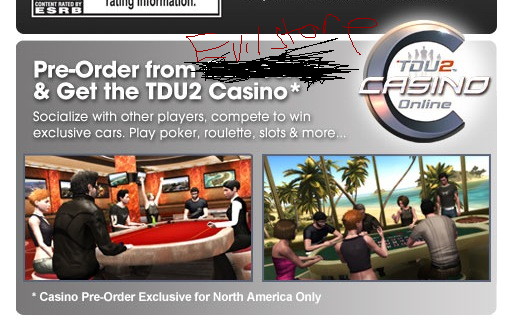02Jun The Travesty of Retailer Exclusives

In the past, I’ve talked about one of the difficulty problems that can result in certain types of games: that of restricting access to game content for players who are unable to play the game at the necessary proficiency. However, a more recent trend is even more insidious, and affects game consumers regardless of their skill-level: the retailer-specific preorder bonus.
For those who are unfamiliar with this (and consider yourself lucky if you are!), this is where getting the game from any source will get you most of the content – but if you want a certain add-on, you’ll need to pre-order the game, in many cases from a specific retailer – and in some cases, different retailers have different bonuses, and so it’s impossible to get the complete game from any source at all, as each copy will be missing some part of the complete game resources. Sometimes, those bonuses are released for all players months later, as either free or paid DLC, but in some cases, people buying a game from certain retailers will be left with an incomplete copy.
Now, in some cases, this is not a huge issue – if the exclusive content is, say, something purely aesthetic, like an extra character skin, this is less of an issue, as gameplay is not particularly affected if you get a package without the bonus. In other cases, the bonus is something that does add to the game, but is relatively minor, so much so that you could play the base game without it and never get the sense that anything was missing. Mass Effect 2 seems to fall into this category: I didn’t get it on preorder, so I didn’t get an armor set or something, but I never felt deprived for not having it, as there were many other armor parts available with different but comparable bonuses. For something like that, it’s still irksome, but I wouldn’t consider it completely game-breaking, as aggravating as it is to me personally to not be able to access a fully complete game simply based on my choice of retailer.
However, game companies are getting pretty close to crossing the line – moving from giving out largely aesthetic bonuses to restricting potentially significant game features to preorders or particular retailers. This post, in fact, is prompted by an email I received from Atari promoting their upcoming racing game, Test Drive Unlimited 2. Apparently, one of the features, a player-accessible casino that serves as a social hub and offers playable casino games, is only available via preorder from a specific retailer, who I will not mention, because I want to do the opposite of help them make money for agreeing to such an unconscionable deal. Even though the game is primarily about racing cars, not playing roulette, this seems like a rather significant chunk of game here, especially as it could be an important aspect of the multiplayer parts of the game – because of that, it is greatly concerning that it is restricted to a specific retailer, and will be absent from versions of the game purchased anywhere else, leaving them essentially incomplete. I mean, think about it: we’re not talking about a sweet hat, or having 51 weapons at your disposal instead of 50, a la DOWII; we’re talking about a peripheral, but still significant, feature that should be in all copies of the game, but isn’t. Given where this trend is going, imagine what the future could hold in store: for example, restricting certain online game types to an exclusive preorder (in fact, didn’t this already happen to an extent with certain versions of Battlefield Bad Company 2?), or perhaps restricting multiplayer entirely, or making certain single-player missions exclusive, or… actually, I’m not sure I want to imagine anything worse, because it’s possible that some publisher might decide it’s a good idea.
Quite frankly, I think the whole thing is a travesty to gamers, retailers, and developers alike, and smacks of the sorts of gimmicks many companies have been on the receiving end of government actions for in the past (see: Intel’s collusion with computer manufacturers to offer processor discounts to those who refused to use their rivals’ components, for one glaring example). Hopefully, the retailers left out in the cold will eventually come to their senses, and sue the game distributors who trade in this nonsense for unfair competition. Until that happens, though, people need to speak up, and let these companies know, in no uncertain terms, that selling a game, regardless of channel, means selling the full and complete version, with everything included.
Update: Further browsing of the official site turns up a little more info: the casino is apparently a standalone game that is separate from, but somehow integrated with, the main game, and as the retailer who shall not be named lists it as a bonus with a “$10 value,” this seems to indicate that it might be available as additional paid DLC later on. However, there’s simply not enough information yet to tell exactly what’s going on with it, and I think my point still stands regardless – no matter how it plays out, it still represents a disappointing trend in game profiteering.

